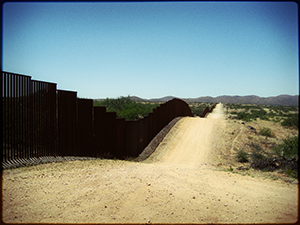CQ Researcher, "Border Security", vol. 23, no. 34, September 27, 2013
CIS National Security Fellow Janice Kephart was Special Counsel, Senate Judiciary Committee, during consideration of Immigration Reform in 2013; Former Border Counsel, 9/11 Commission.

Do we need more border security? Yes. Specifically, we need more efficient and cost-effective measures that identify those who seek to do us harm and keep them out or apprehend them. This can be achieved by defining a secure border, creating a secure border system and adopting measures to determine success.
A “secure border” should be capable of blocking those who pose a threat or attempt illegal entry via visas, ports-of-entry or immigration-benefit processing. That's in addition to the interdiction work of our 20,000 Border Patrol agents. It is essential to verify visitors' identities and ensure they abide by the terms of their entry. Creating secure borders requires Congress to support a balance of resources, law and policy so that we can:
- Maintain and expand visa investigations to prevent those with nefarious intentions from entering.
- Install, where feasible, fencing across the Southern border that can't be stepped over, cut, tunneled under or ramped over.
- Use technology to achieve 100 percent detection and safer, more efficient operations without increasing Border Patrol staff.
- Deploy cost-effective, feasible biometrics at airports and seaports of entry to ensure that holders of expired visas depart on time.
- Empower states and localities to support federal immigration enforcement and enable local agents to retain certain powers that the Obama administration has severely curtailed by invoking “prosecutorial discretion.”
- Discourage inadequate review of immigration-benefit applications and reward proper vetting.
- Expand E-Verify, the worker authorization program.
Congress must exercise its authority in measuring success. A Senate immigration bill allows the Department of Homeland Security to exercise discretion or grant waivers in more than 200 types of immigration cases, enabling the department — not Congress — to measure success.
Nearly all of the 550,000 individuals on the terrorist watch list are foreign-born, and up to 20,000 of them are U.S. residents. In addition, every major U.S. city is infiltrated by violent drug cartels. Illegal-entry numbers for the January-April period increased substantially between 2012 and 2013, after the administration recommended immunity from deportation for young illegal immigrants brought here as children. So yes, we need more border security. But mostly, we need better border security.
